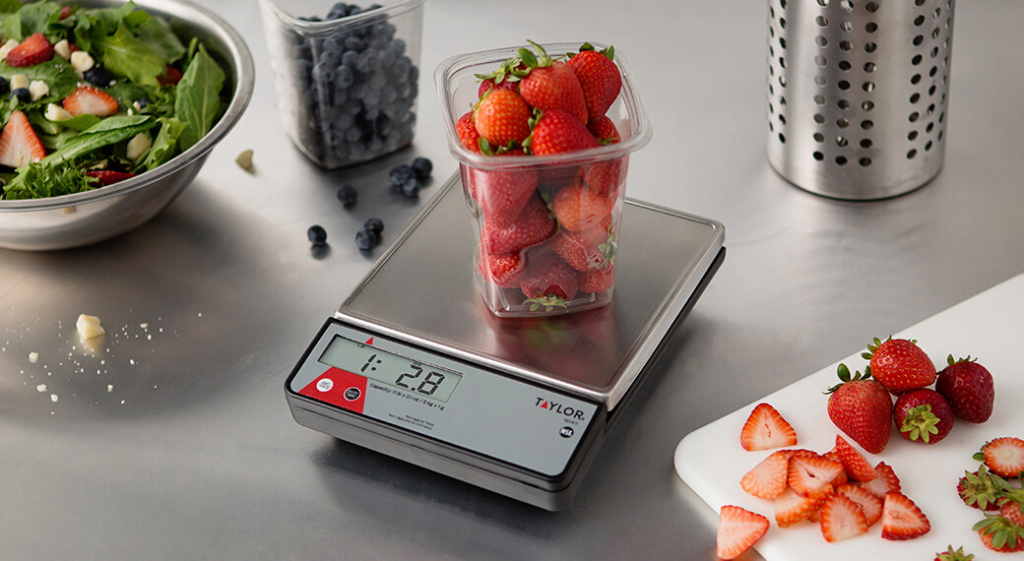In the fast-paced environment of a professional kitchen, precision and accuracy are paramount. Commercial scales play a crucial role in ensuring consistent portion sizes, maintaining inventory control, and adhering to legal requirements. Choosing the right scales for your specific needs is key to enhancing your kitchen’s efficiency and profitability. In this article, we take the guesswork out of purchasing digital scales for your commercial kitchen.
Types of Commercial Kitchen Digital Weighing Scales
The two types of digital commercial kitchen scales are portion control and receiving.
Digital Portion Control Scales
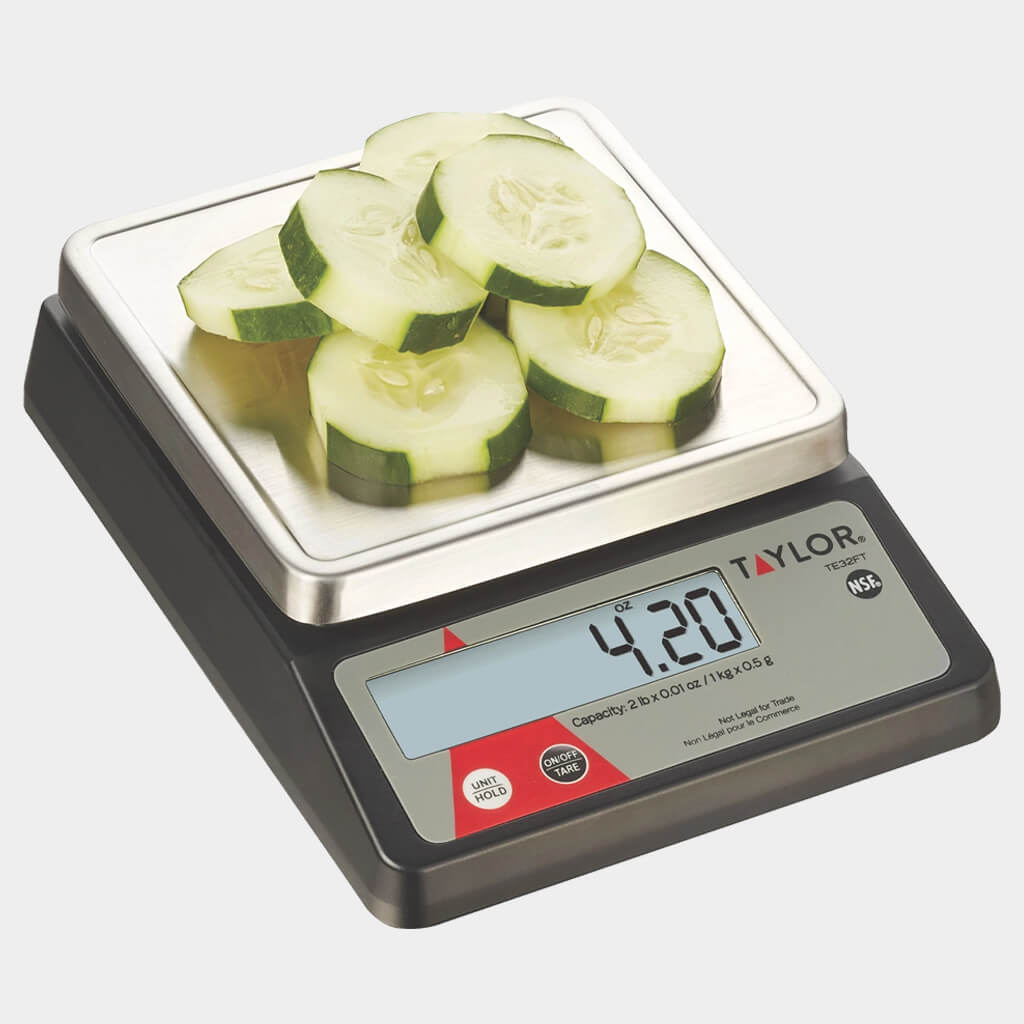
Digital portion control scales are used to measure ingredients accurately, ensuring that dishes are consistent in quality and size. This is especially important for high-volume kitchens, where even small errors in portioning can add up to significant losses over time.
Digital portion control scales are also used to:
- Reduce food waste by eliminating over-portioning.
- Control costs by ensuring that ingredients are used efficiently.
- Improve customer satisfaction by providing consistent portions.
- Comply with food safety regulations, which often require that certain ingredients be weighed accurately.
Digital Receiving Scales
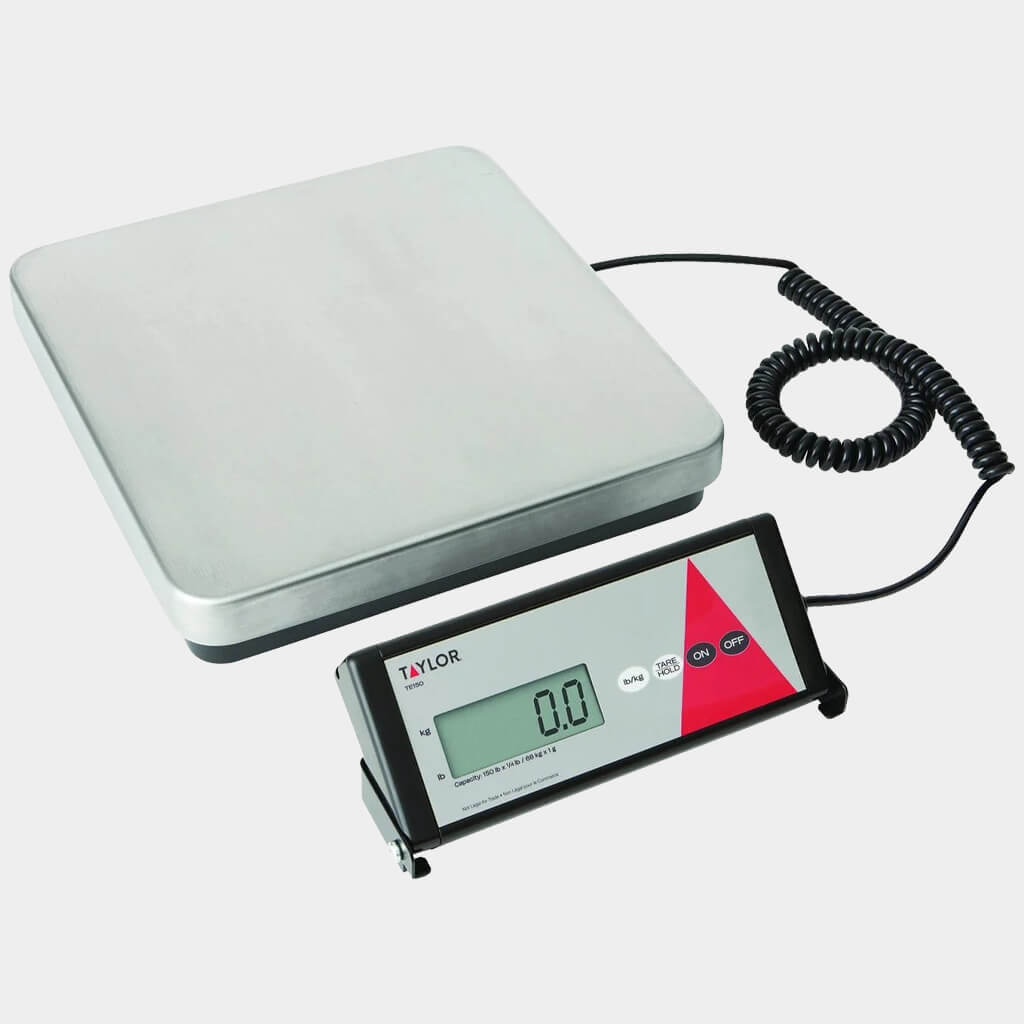
Digital receiving scales weigh incoming shipments of food and other supplies to ensure that the kitchen is receiving the correct quantities of goods and that invoices are accurate.
Digital receiving scales are also used to:
- Track inventory levels and prevent stockouts.
- Identify discrepancies in shipments and initiate corrective action.
- Comply with food safety regulations, which often require that certain foods be weighed accurately upon receipt.
The most important aspect of purchasing digital scales when operating in a commercial setting is investing in a brand known for durability, reliability, and accuracy.
Weighing Your Options
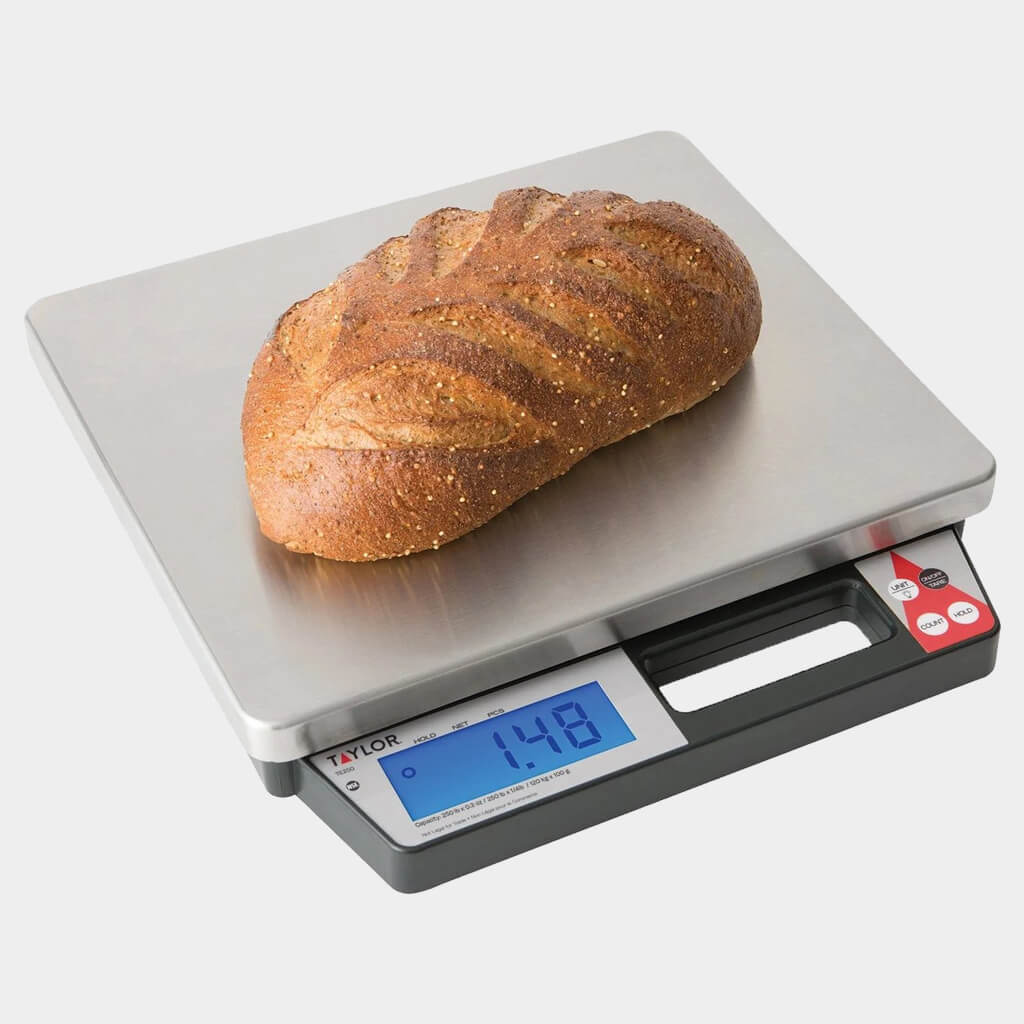
Next, we take a closer look at the factors that make a big difference when choosing the right scales for your professional kitchen: compatibility, precision technology, design, and legal compliance. This section includes examples of commercial kitchen scales as well as explains important features so that you’ll never have to ask, “What does this button do?”
Compatibility
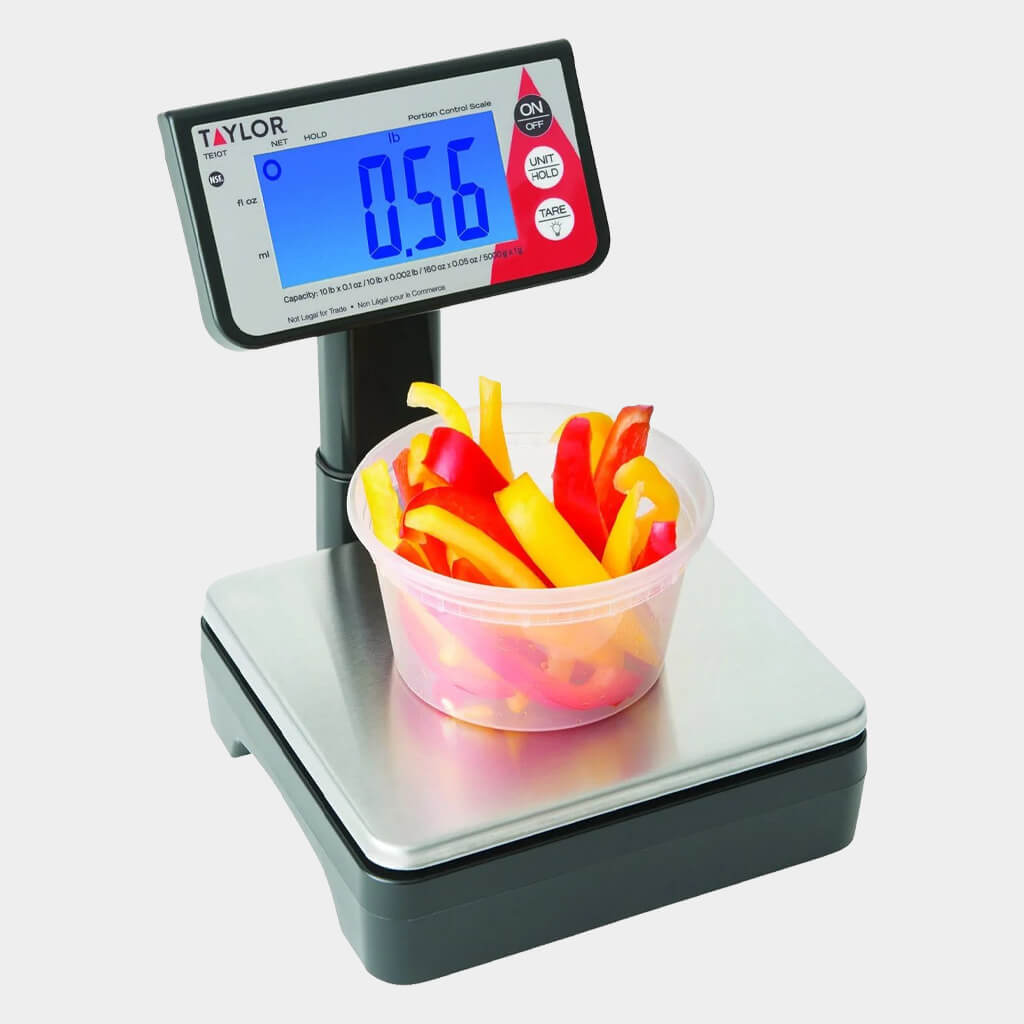
Understanding the specific needs of your business, such as the average batch size and the delicacy of ingredients, is key in selecting the right scales to accommodate your establishment and menu.
Capacity
The first thing to consider is scale capacity. The capacity of a commercial scale refers to the maximum weight it can accurately measure. Selecting the appropriate capacity is essential to avoid overloading the scale and compromising its accuracy. For example, the Digital Portion Control Scale with Tower Readout, seen above, measures up to 10 lb. of dry ingredients.
To figure out what capacity your kitchen requires, consider the average batch size of the ingredients you typically weigh, allowing some buffer for occasional larger batches. For example, a pizzeria might require a high-capacity scale to weigh large quantities of dough, whereas a bakery might need a smaller capacity scale for precise measurements of ingredients like yeast or flavorings. Consider the maximum batch size you’ll be dealing with.
Platform Size
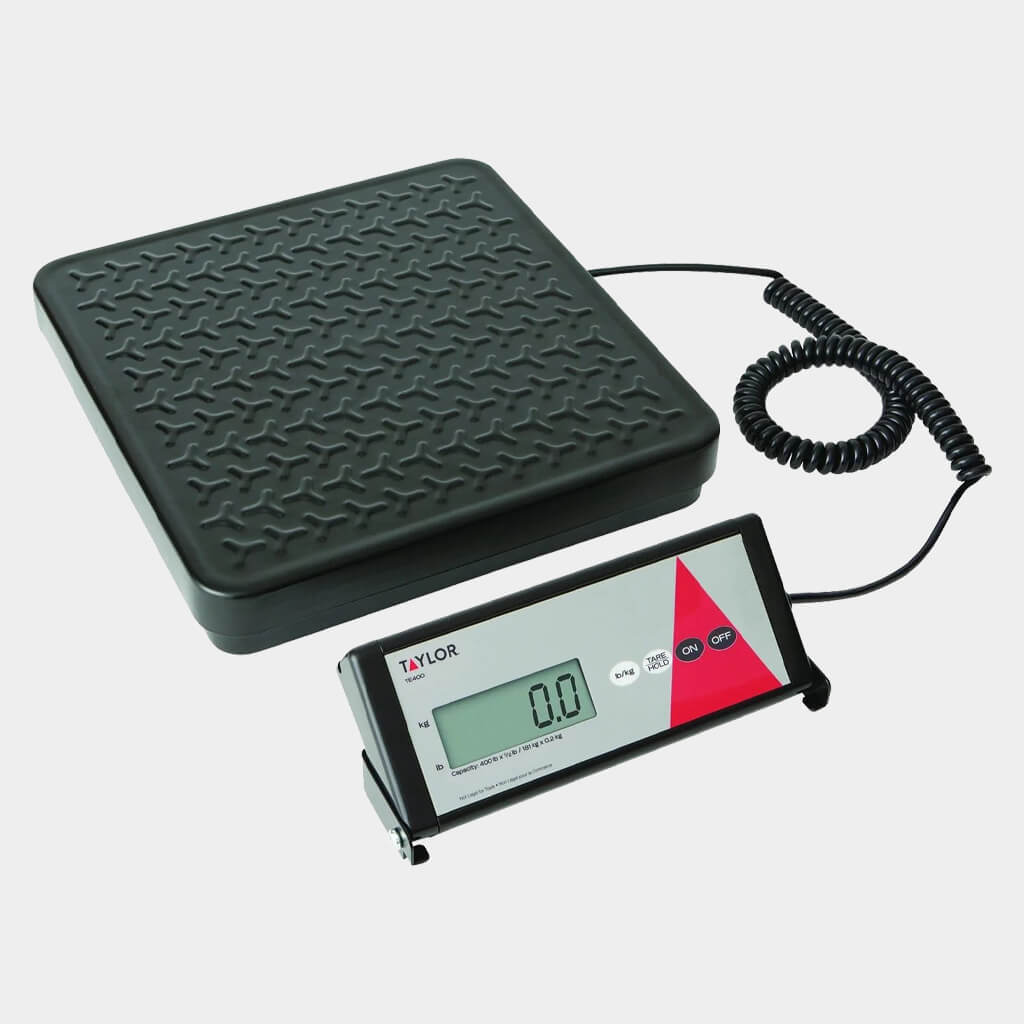
The platform size should accommodate the size and weight of the items you typically weigh. A larger platform provides better stability and reduces the risk of items falling off during weighing. Consider the size of the containers and ingredients you’ll be weighing to ensure they fit comfortably on the platform. This is especially important because if your scale is not stable the readout will fluctuate.
Readability/Increments
Readability refers to the smallest increment that the scale can display. For precise measurements of delicate ingredients, such as spices or herbs, a scale with high readability (e.g., 0.01 grams) is crucial. For larger items, like whole produce or meat cuts, a scale with larger increments (e.g., 0.1 ounces) will work nicely.
Typically, the higher the capacity, the less readability. Higher capacity scales may have larger increments, making them less suitable for precise measurements. For instance, a bulk ingredient scale in a busy restaurant might have a readability of 0.5 ounces, while a bakery scale might have a readability of 0.01 ounces for fine measurements.
Weighing Unit
Commercial scales typically support multiple weighing units, including ounces, pounds, kilograms, and grams. Choose a scale that offers the units you commonly use to avoid conversion errors.
Precision Technology
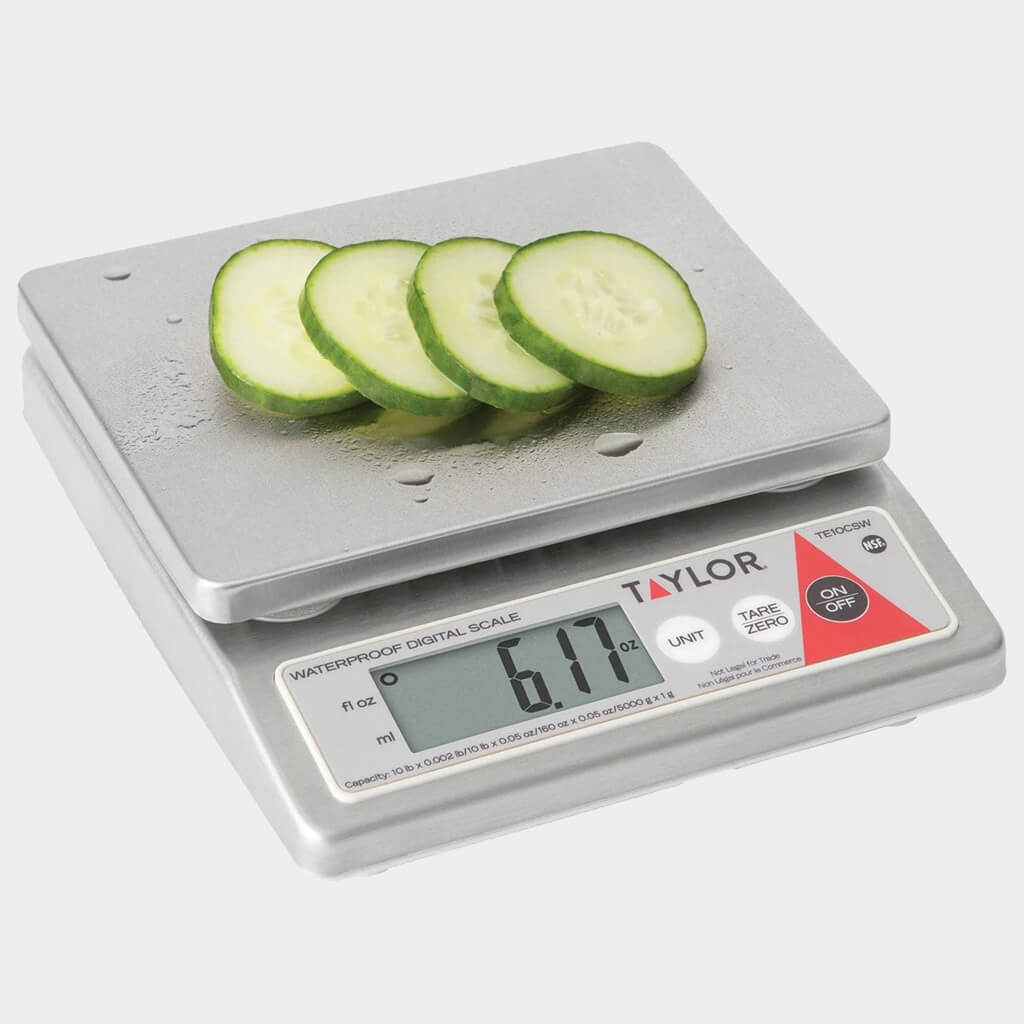
Technology has come a long way and scales are more user-friendly than ever. Here are some common features to look for when deciding on scales for your commercial kitchen.
Tare Function
This important function is a handy tool vital for both batch cooking and portioning. The Tare function allows operators to build their recipes right on the scale by setting the scale to zero with an empty container or ingredient already on the platform. This is often referred to as “zeroing out” or “zeroing the scale.” Zeroing out ensures that the weight of the container or ingredient already on the scale is not factored into the final measurement.
For example, when preparing a cake batter, you can place the mixing bowl on the scale, Tare it to zero, add the flour, Tare it again, add the sugar, Tare it again, and so on. This simplifies the process and reduces the need for multiple measuring cups or bowls. And of course, fewer bowls means less cleanup.
Calibration
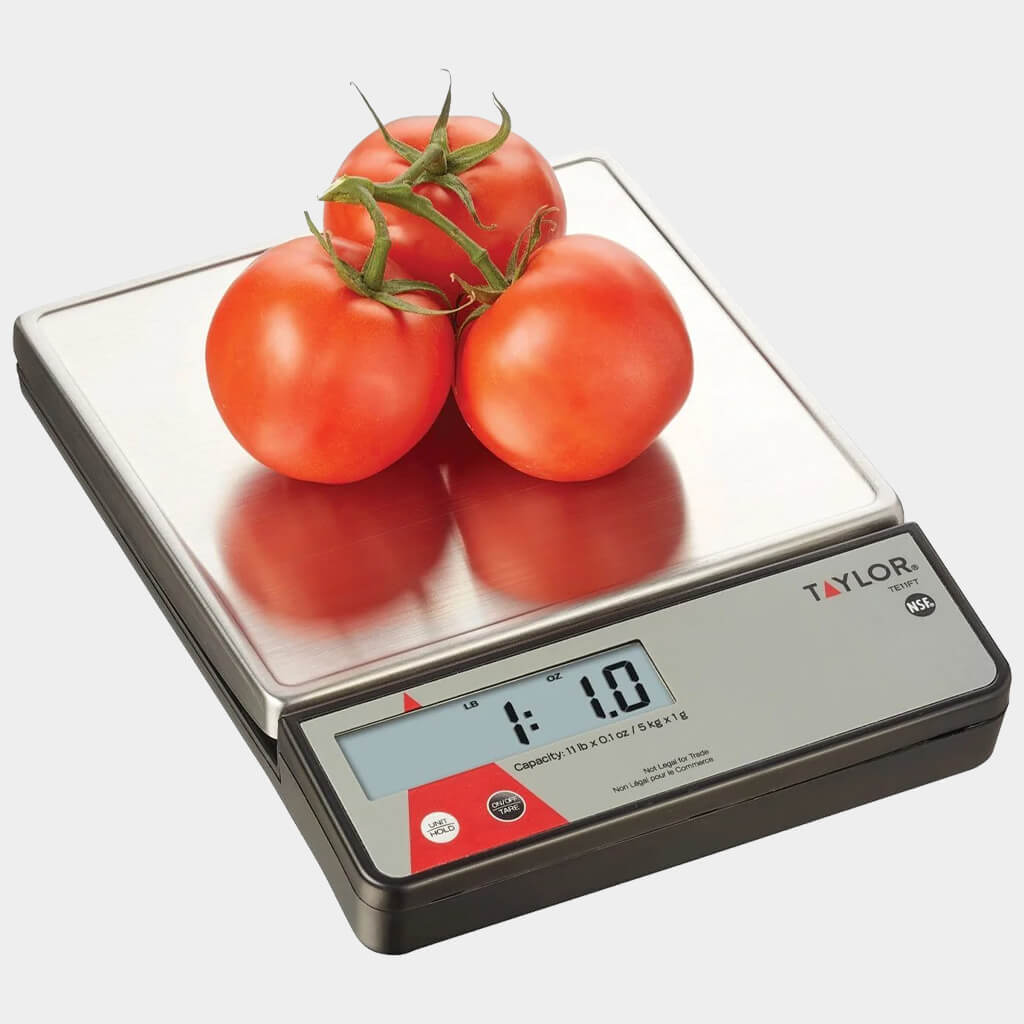
Calibration is the process of adjusting a scale to ensure its accuracy. Regular calibration is essential to maintain the scale’s performance and prevent inaccurate measurements that could affect inventory control and profitability. Most commercial scales have a calibration feature that allows you to check and adjust the scale’s accuracy using certified weights.
Over/Under Features
If you weigh the same item over and over again, such as hamburger patties, dough balls, or steaks, the Over/Under feature will alert the operator if the portion they are weighing is over or under the weight required for the product. This feature is incredibly useful for saving time by standardizing item weights with extreme precision.
Design
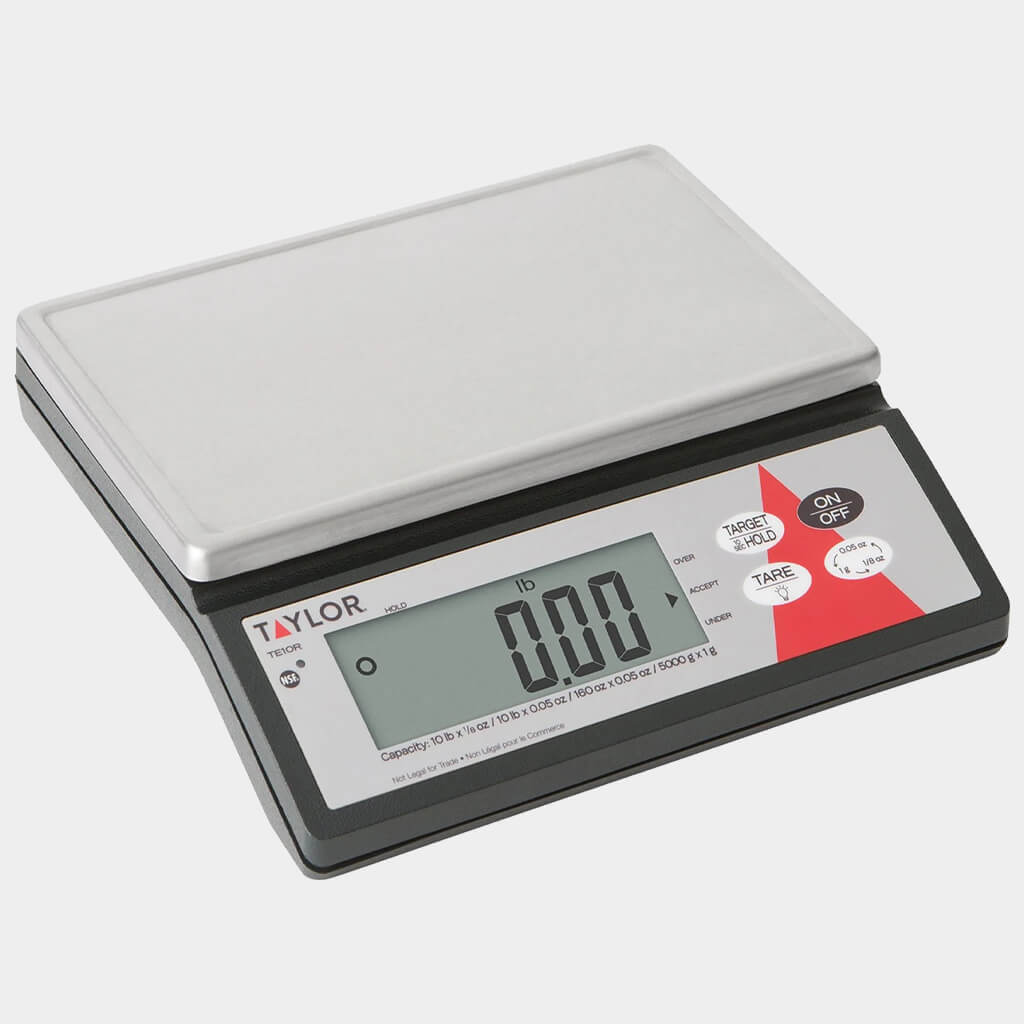
This section explores two key facets of the scale’s construction: connectivity and portability, along with the significant advantage waterproof designs bring to the table.
Connectivity
Connectivity features, such as RS-232, USB, or Ethernet, allow you to connect the scale to a printer or POS system. This enables you to print weight tickets for inventory tracking, customer receipts, or record-keeping purposes.
Portability
If you’re often on the move with your scale, the last thing you want to worry about is your power supply. Portable scales streamline food preparation and inventory management by allowing weighing to be done anywhere. Choosing a scale with a rechargeable battery pack solves this problem.
Waterproof
These scales are specifically designed to withstand the rigors of constant use and exposure to water, grease, and other harsh conditions, ensuring accurate measurements and long-lasting performance. Commercial kitchens are often characterized by humidity and direct contact with water, particularly in areas like seafood preparation, dishwashing, and sanitation. Waterproof scales are unaffected by these conditions, preventing damage to their internal components and ensuring consistent accuracy. Their sealed design even protects against dry spills, such as flour or bits of dough mixture.
Legal Compliance
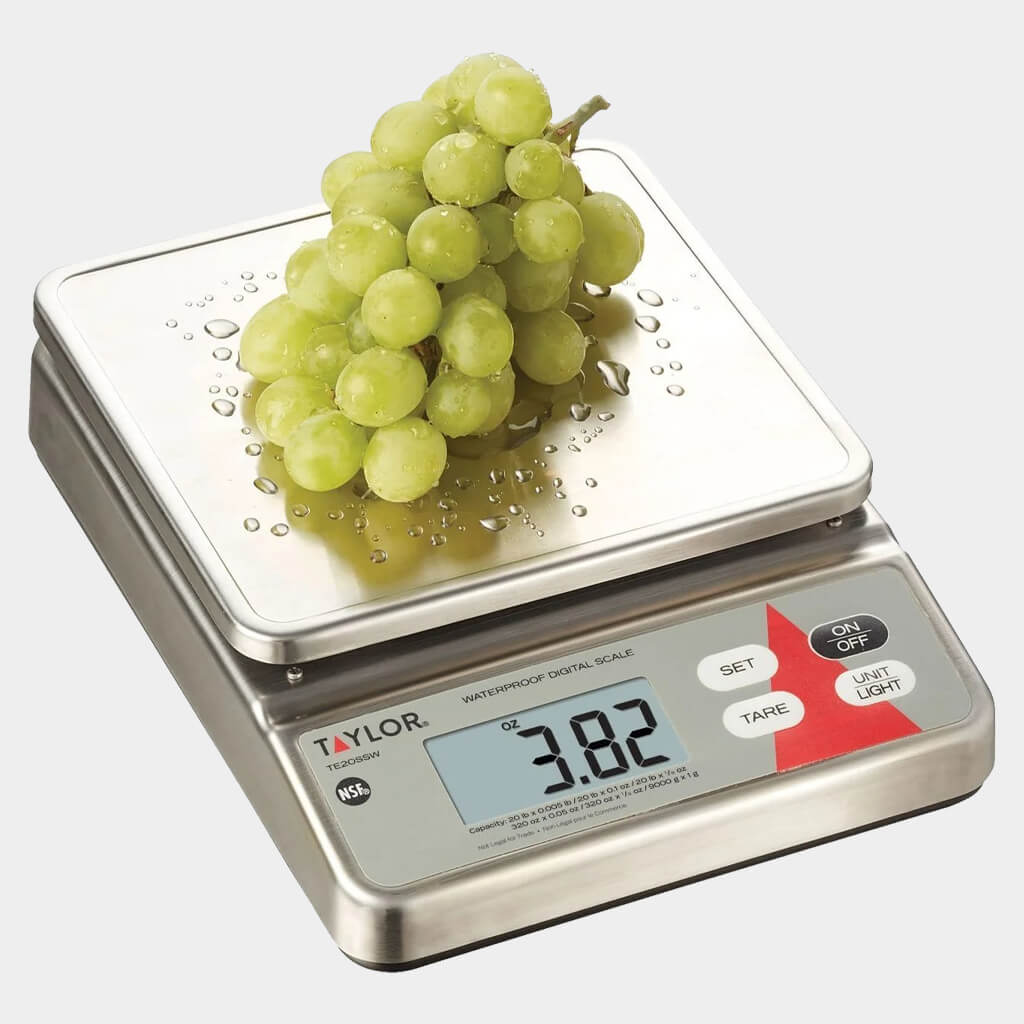
Understanding certifications such as NSF (National Sanitation Foundation) and NTEP (National Type Evaluation Program) is essential to ensure adherence to industry regulations.
NSF Certification
NSF certification complies with applicable industry standards and regulations including requirements set by health departments and other regulatory bodies. If your scale is NSF Certified, it has been rigorously tested to meet stringent standards for food safety.
NTEP
National Type Evaluation Program (NTEP) certification is necessary if you intend to use the scale for commercial transactions or selling products by weight. NTEP-approved scales are legally certified for trade and can be found in places like delis, farmers markets, and grocery stores where you need to charge customers based on weight.
If you sell items by weight, such as at a deli or bakery, ensure your scale is NTEP-certified to comply with legal requirements. Each NTEP-approved scale will have a certificate or conformance number listed on it.
Navigating the Commercial Scale Market
When selecting commercial scales for your professional kitchen, it is crucial to consider factors such as capacity, accuracy, durability, and ease of use. By carefully evaluating these factors, you can select commercial scales that meet your specific needs and contribute to the efficiency and quality of your professional kitchen operations.
Shop All Taylor Precision Products
Partnered with Taylor Precision
The Taylor brand today stands for the same thing that we have for over 170 years – a strong brand, high quality, high accuracy, and dedication to innovating both the professional and consumer markets. We pride ourselves on our USA-based marketing, design, engineering, and customer service.

